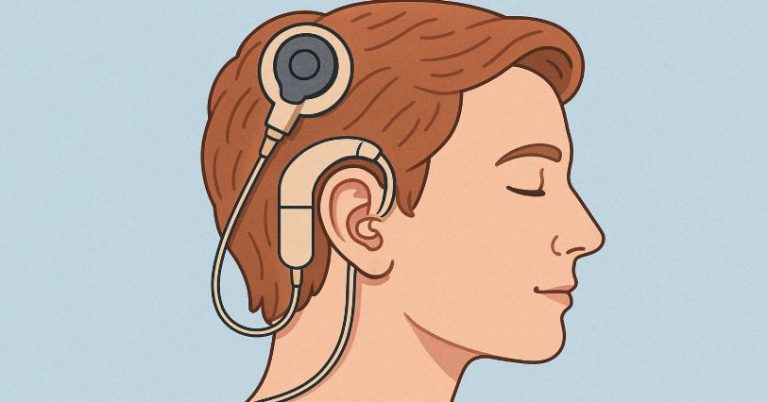Is it the medication, the mood, or metabolism that causes the scales to tip upwards during antidepressant treatment? Weight gain is one of the most commonly reported side effects of antidepressants, yet the reasons behind it are often misunderstood. For many, the concern about gaining weight can be so significant that it influences their willingness to start or continue treatment.
Understanding how antidepressants affect the body and why not everyone experiences the same outcomes is essential for both patients and practitioners.
While these medications play a vital role in managing depression and anxiety, the link between antidepressants and weight gain is not a simple cause-and-effect scenario. Instead, it’s influenced by a mix of drug type, individual biology, behavioural changes, and the natural course of recovery from mental health conditions.
Can All Antidepressants Cause Weight Gain?

Yes, nearly all classes of antidepressants have the potential to cause weight gain, but the degree and likelihood vary greatly depending on the type of drug and the individual taking it. Research shows that certain medications are more commonly associated with significant increases in weight than others.
People respond differently to the same medication. One person may experience substantial weight gain on a particular antidepressant, while another may remain weight-stable or even lose weight.
Additionally, not all weight gain during treatment is directly caused by the medication. In some cases, the return of appetite and energy levels as depression lifts can lead to natural weight regain in people who had previously lost weight due to their mental health condition.
Which Antidepressants Are Most Likely to Lead to Weight Gain?
Among the various antidepressant drug classes, some have a more established link to weight gain. These include older classes like Tricyclic Antidepressants (TCAs) and Monoamine Oxidase Inhibitors (MAOIs), as well as certain drugs from newer categories such as SSRIs and atypical antidepressants.
The following table outlines common antidepressant types and their association with weight gain:
| Antidepressant Class | Example Drugs | Weight Gain Potential |
| Tricyclic Antidepressants (TCAs) | Amitriptyline, Nortriptyline, Doxepin | High |
| Monoamine Oxidase Inhibitors | Phenelzine, Tranylcypromine | Moderate to High |
| SSRIs | Paroxetine, Sertraline, Fluoxetine | Low to Moderate (varies) |
| Atypical Antidepressants | Mirtazapine | High |
| SNRIs | Venlafaxine, Duloxetine | Moderate |
| NDRIs | Bupropion | Low |
| Mixed Serotonergic | Vortioxetine, Vilazodone | Low to Moderate |
Among these, paroxetine (SSRI) and mirtazapine (atypical) have shown strong associations with weight gain in clinical studies. On the other hand, bupropion has consistently shown lower weight gain risk and is sometimes associated with weight loss.
What Mechanisms Cause Antidepressants to Lead to Weight Gain?
The process by which antidepressants contribute to weight gain involves multiple biological and behavioural mechanisms. A key factor is the influence of these medications on neurotransmitters that regulate appetite, metabolism, and satiety, particularly serotonin.
Some antidepressants, especially those that block serotonin 2C receptors, can interfere with the brain’s ability to signal fullness, which leads to increased food intake. In addition, antidepressants may alter how the body stores fat or processes sugar, contributing to a slower metabolism and increased fat accumulation.
Fatigue and sedation, common side effects of medications like mirtazapine and TCAs, also contribute to decreased physical activity, further exacerbating weight gain.
In other instances, individuals who had reduced appetite or weight loss due to depression may find that once their mood improves, they regain their normal appetite and eat more, leading to weight gain that isn’t necessarily unhealthy but may still be distressing.
Could Lifestyle and Personal Factors Be Making It Worse?

Yes, absolutely. Weight gain associated with antidepressant use is often not solely due to the medication itself. It’s influenced by a range of individual factors that include:
- Age and gender: Middle-aged adults, especially women, are more susceptible to antidepressant-related weight gain.
- Pre-existing lifestyle habits: People who are already sedentary or have unhealthy eating habits may find these patterns worsening during treatment.
- Mental health symptoms: Depression and anxiety can lead to comfort eating, reduced motivation for exercise, and sleep disruption, all of which contribute to weight gain.
- Genetic predisposition: Some genetic variants, such as polymorphisms in the COMT gene, may influence how a person responds to antidepressants in terms of metabolism and appetite.
It’s important to remember that some people may gain weight while on antidepressants even if they maintain a healthy diet and regular exercise routine. This makes early monitoring and personalised treatment essential.
How Quickly Can Weight Gain Occur After Starting Antidepressants?
The timeframe for weight changes varies depending on the type of medication and the individual. For some people, weight gain may become noticeable within the first few weeks, while for others, it only becomes apparent after several months of continuous use.
Studies suggest that short-term use (under six months) of SSRIs and SNRIs may not cause significant weight gain. However, long-term use especially beyond 12 months, has been linked to gradual increases in weight.
Notably, patients on certain antidepressants for over two years have shown a significantly increased risk of developing type 2 diabetes due to weight gain and metabolic changes.
Is There Any Way to Prevent or Minimise Weight Gain on Antidepressants?
Preventing weight gain entirely may not always be possible, but there are strategies that can significantly reduce its impact. The most effective approach combines dietary management, regular physical activity, and medical oversight.
Maintaining a balanced diet rich in vegetables, fruits, lean proteins, and whole grains can help control calorie intake without extreme restriction. Physical activity, especially cardiovascular exercise combined with resistance training, boosts metabolism and offsets some of the sedative effects of antidepressants.
Early awareness is key. Tracking changes in appetite, energy levels, and weight from the start of treatment allows for timely intervention. In some cases, introducing behaviour therapy or working with a nutritionist can make a substantial difference.
If lifestyle modifications are not effective, patients may discuss with their doctor the possibility of switching to a medication with a lower risk of weight gain or adjusting the dosage.
Are There Antidepressants That Don’t Cause Weight Gain or Might Even Help with Weight Loss?

Yes. While many antidepressants are associated with weight gain, some have shown minimal impact or even slight weight loss, especially during early use.
Bupropion (Wellbutrin) stands out as the most weight-neutral antidepressant, with studies showing lower risk of weight gain or even moderate weight loss in some patients. Fluoxetine (Prozac) may initially lead to weight loss, although this effect tends to reverse over longer use.
Newer antidepressants like vortioxetine (Trintellix) and vilazodone (Viibryd) have demonstrated lower incidence of weight-related side effects, though long-term data is still being evaluated.
It’s essential to remember that each individual responds differently, so a drug that’s weight-neutral for one person might still affect another. Clinical supervision is required when making any changes to medication.
Should You Speak to a Healthcare Professional if You Notice Weight Gain?
Absolutely. If you begin to notice unexpected or significant weight gain after starting an antidepressant particularly if it affects your self-esteem or physical health you should consult your healthcare provider. Your doctor may suggest several options:
- Monitoring the trend over a few months before deciding on changes
- Adjusting the dosage to a lower level
- Switching to a weight-neutral alternative
- Introducing behavioural therapy to manage lifestyle influences
- Adding another medication to balance out the weight-related side effects
Whatever the decision, it’s important not to discontinue antidepressants suddenly, as this can cause withdrawal symptoms or relapse of depression.
Is Switching Antidepressants a Safe Way to Manage Weight Gain?
Switching antidepressants can be a safe and effective strategy, but it must be carefully managed by a medical professional. Not all antidepressants are equally effective for every individual, and what works for one may not work for another.
If the benefits of the current medication outweigh the side effects, a doctor may choose to add another agent, such as bupropion, to help balance mood while reducing weight gain risk. Alternatively, they may gradually transition the patient to a different drug with a favourable side effect profile.
Ultimately, any medication change should be based on a comprehensive review of the patient’s mental health progress, side effect tolerance, and personal treatment goals.
Conclusion – Can You Balance Mental Health and a Healthy Weight?
Antidepressants can be life-changing and even life-saving for those suffering from depression and anxiety. However, the reality is that some medications may lead to weight gain, which can pose a new set of challenges for both patients and clinicians.
The good news is that this side effect doesn’t have to derail recovery. Through early planning, informed decisions, and professional support, patients can manage their physical health alongside their mental wellbeing.
A healthy body and a healthy mind are not mutually exclusive goals. By working with healthcare professionals, it’s entirely possible to strike a balance between the two.
FAQs About Antidepressants and Weight Gain
Do all antidepressants lead to weight gain eventually?
Not all antidepressants cause weight gain. Medications like bupropion are less likely to have this effect. Some patients even lose weight while on treatment.
How much weight can you gain on antidepressants?
It varies by medication and individual. Some may gain a few pounds, while others experience more significant increases over several months or years.
Can antidepressant-related weight gain be reversed?
Yes. With diet changes, exercise, and sometimes medication adjustments, it’s possible to lose the weight gained during treatment.
Is weight gain a sign the medication is working?
In some cases, yes. Patients who lost weight due to depression may gain it back as their appetite and energy improve.
Are there antidepressants that help with weight loss?
Bupropion has been associated with modest weight loss in some individuals and is considered when weight gain is a concern.
What’s the best way to manage antidepressant weight gain?
A mix of regular physical activity, dietary adjustments, and open communication with your healthcare provider is essential.
Can switching antidepressants help with weight control?
Yes, but only under medical supervision. Switching drugs or combining treatments should always be carefully planned.






